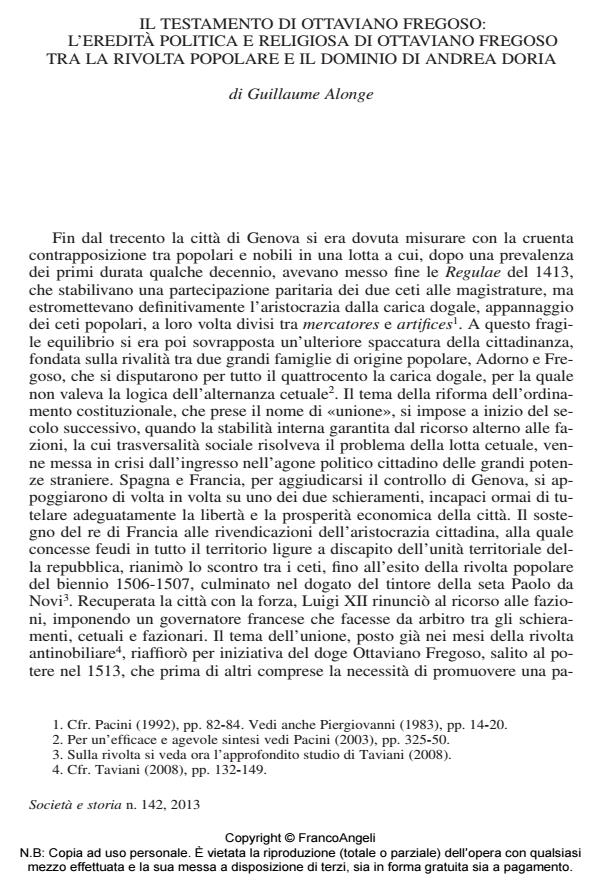Fregoso’s testament: political and religious legacy among popular uprising and Andrea Doria’s supremacy
Journal title SOCIETÀ E STORIA
Author/s Guillaume Alonge
Publishing Year 2014 Issue 2013/142
Language Italian Pages 31 P. 617-647 File size 559 KB
DOI 10.3280/SS2013-142001
DOI is like a bar code for intellectual property: to have more infomation
click here
Below, you can see the article first page
If you want to buy this article in PDF format, you can do it, following the instructions to buy download credits

FrancoAngeli is member of Publishers International Linking Association, Inc (PILA), a not-for-profit association which run the CrossRef service enabling links to and from online scholarly content.
On the 30th of May 1522 the governor of Genoa Ottaviano Fregoso lost his power after nearly ten years. He was captured by imperial soldiers and brought as prisoner in the Reign of Naples, where he died in April 1524. His will, recently discovered, is published for the first time as it allows to retrace the diplomatic and religious choices of Ottaviano during his two years detention. Even if his name is strickly linked to the Italian literature as one of the main characters of Cortegiano by Baldessar Castiglione, his long government of Genoa, firstly as doge then as governor of French king, was fundamental to develop new models of charity. Infact, he promoted the development of Divino Amore confraternity, which became very popular in many Italian states. Not only was Ottaviano Fregoso a promoter of innovative charitable feelings, but he was also the leader of a political reformation which brought to the promulgation of new Republic constitution on 1528.
Keywords: Ottaviano Fregoso, history of Genoa, Divino Amore, factions, reform of 1528, sack of 1522.
- Quale storia della società? Uno sguardo sull'epoca moderna Paola Bianchi, in SOCIETÀ E STORIA 178/2023 pp.711
DOI: 10.3280/SS2022-178005
Guillaume Alonge, Il testamento di Ottaviano Fregoso: l’eredità politica e religiosa di Ottaviano Fregoso tra la rivolta popolare e il dominio di Andrea Doria in "SOCIETÀ E STORIA " 142/2013, pp 617-647, DOI: 10.3280/SS2013-142001